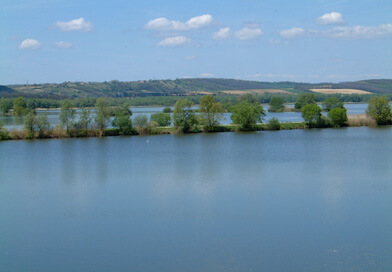George Osborne announced a welcome boost of £700 million funding for flood defences and resilience in his budget yesterday. The money is to be raised by increasing the standard rate of Insurance Premium Tax by 0.5%.
The chancellor also announced that a review was already under way by the Environment Secretary and the Chancellor of the Duchy. We hope that a large part of this new fund will be invested in natural flood defences, such as planting trees and using natural resources to slow the water flow.


The CCRI has been actively involved in natural flood management in recent years. In particular, Chris Short has been working with the Farming and Wildlife Advisory Group South West (FWAG SW), the Cotswold Water Park Trust (CWPT) and the Gloucestershire Rural Community Council to develop the Cotswold Water Park WILD Project (Water Framework Directive (WFD) with Integrated Local Delivery). The aim of the WILD project has been to bring about environmental improvements to the rivers and other watercourses of the Cotswold Water Park.
On the Chancellor’s budget boost to flood management, Chris commented,
“It is not clear how the money that is being made available will be divided between the various demands that will be put on it. However, the EFRA committee consultation and the Environment Minister enquiry have all received representations from various natural flood management projects. We would be delighted to show them the work that we are doing should they want to come out to Gloucestershire”.
Chris also said,
“The WILD Project has brought local communities and landowners together in understanding and getting involved in the management of local water courses. With local community input it also devised and delivered a plan of enhancements over a three year period. The project was actively supported by Natural England and the Environment Agency, and is part of a wider programme of implementing the catchment-based approach.”
The WILD project also delivered a framework for delivering Good Ecological Status (GES) in all water bodies in the project area in the medium (2021) and long (2027) term, working with partners to embed protection of water quality in to local governance to ensure long term sustainability.
Phase 1 of WILD concluded on 31st March 2016 and is now requesting an extension to other water bodies and parishes in the Upper Thames Catchment from 2016 – 2021. A summary of the key outcomes and achievements from Phase 1 of the project has just been published – [ddownload id=”10308″ button=”grey” text=”Download Phase One summary of WILD project”]


Chris has also been working with Stroud District Council on a project which is using natural features, such as leaky dams, to reduce the risk of flooding. The ‘Rural Sustainable Drainage System project’ has installed over 100 individual natural flood defences so far, with an overall target of 1000 in the Stroud Valleys alone. The cost of the work is much lower than engineered and hard flood defences and the structures fit well within the landscape and can be constructed through community groups, such as local flood action groups, helping them to contribute to the solution.
Chris gave a public lecture on natural flood management at the University of Gloucestershire last month. Link to more information on lecture.




